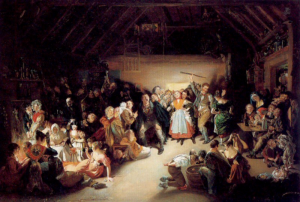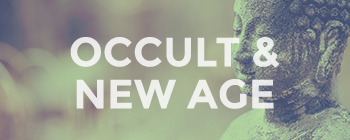Halloween, and we have spent the afternoon with family in Mumbles. A leisurely walk along the front to Verdi’s ice cream parlour, ice cream cones for everyone, and a stroll back to the car. We saw witches, zombies, and monsters, none more than four feet tall, bless them, and a husky dog dressed as a witch, complete with pointy hat, cloak, and bat wings. Shop workers were getting ‘into the spirit of things,’ suitably daubed with blood, and as we arrived home in the early dusk, parents were walking out with their kids ready to trick-or-treat.
Halloween, here in the UK, has a patchy history and receives a mixed reception. You won’t need to look far to find someone who will tell you, ‘We never had Halloween when I was growing up.’ For a certain generation this is true enough, although it goes back further than people imagine, as far as the 16th century at least. I never went trick-or-treating. In my childhood the day passed unmarked as we looked forward to November 5th and the opportunity to burn an effigy of a Catholic (C’mon, you know that’s what it is). Brits of a certain age will complain about its alien nature, ‘another American import,’ and about the commercialisation.
The younger generation, however, don’t appear to have a problem. They have grown up in a world that sells them everything, whether Halloween, Christmas, Easter, Diwali, Samhain, Thanksgiving, Hannukah, you name it, and for them Halloween has always been – hasn’t it?
In the United States it seems to be an institution and Christians here have puzzled over how it could sit so easily with so many American Christians. Yet, here we are, facing the same challenge; what do Christians do with Halloween?
All Hallows
You will recognise the word ‘hallow’ perhaps from the Lord’s Prayer – ‘Hallowed be your name.’ We’ll come back to that. To hallow something is to honour it as holy. The plural, hallows, means ‘saints’ and Halloween is short for ‘All Hallows Eve,’ All Saints Eve, and is celebrated on 31 October in a number of countries. It marks a time when, in some Christian traditions, the dead are remembered, including saints and martyrs.
How is it celebrated? Well, Christians in some places will go to church, sometimes abstention from meat is involved, eating certain fruits and vegetables helping to keep the vigil, hence the tradition of bobbing for apples. But, lets be frank, the Halloween I saw recently, the one we fret about as Christians, is anything but Christian in its content and culture.
This is because it is a Pagan holiday, Samhain, that has been ‘baptised’ into the Christian Church in much the same way as Christmas. The latter might be said to be a successful ‘conversion’ inasmuch as people do identify it with Christ, even if their celebrations are worldly and commercial. The latter has failed to catch people’s imagination and is marked with involvement in the occult and divination, from the relatively harmless trick-or-treating, to the more serious celebrations held by Pagans across the world. Recent years have seen Halloween move even further away from its pagan roots, becoming more a gorefest based on the popular horror genre. I wonder what Pagans think about that?
The picture (right) is called Snap-Apple Night painted by Irish artist Daniel Maclise in 1833. It was inspired by a Halloween party he attended in Blarney, Ireland, in 1832. The caption reads:
There Peggy was dancing with Dan
While Maureen the lead was melting,
To prove how their fortunes ran
With the Cards could Nancy dealt in;
There was Kate, and her sweet-heart Will,
In nuts their true-love burning,
And poor Norah, though smiling still
She’d missed the snap-apple turning.
It is a festival associated in people’s minds with ghosts, ghouls, witches, divination, tricks, and customs that far pre-date Christianity and have nothing to do with the Christian faith. For genuine Pagans it is as much a part of their calendar as is Easter for Christians, or Diwali for Hindus. For Christians there are clear warnings in Scripture against calling up the dead, divination, fortune-telling, and other occult practices.
On the other hand, it is part of this world, and Christians are in this world, though we should not be of this world. It is a Pagan festival marked with distinctly Pagan symbolism and we are not Pagans, so why do Christians Celebrate Halloween? Indeed, we are to Hallow the name of God, and that means having no gods before him. We are a holy people, meaning set apart for service to God.
Christians are meant to be a light in a dark world and so we shouldn’t be surprised by the darkness, or that the world embraces the world’s own ways. Nor should we simply shake our fist at the darkness. Its dark and we should get over it. We are not of this world and, while we pray for the world, witness to the world, and hope for the world, we should know that this world will pass away. Meanwhile, surely it is better to light one candle than curse Pagans for doing what Pagans do. Paul wrote to the Corinthian Church:
‘What business is it of mine to judge those outside the church? Are you not to judge those inside? God will judge those outside…’ (1 Cor.5:12-13)
How you do that will be different for different people, but we can’t be a light if we don’t stand in stark contrast to the darkness, and whatever we do must, surely, Hallow the name of God.
What is seen is temporary. What is unseen is eternal ~ 2 Corinthians 4:18

